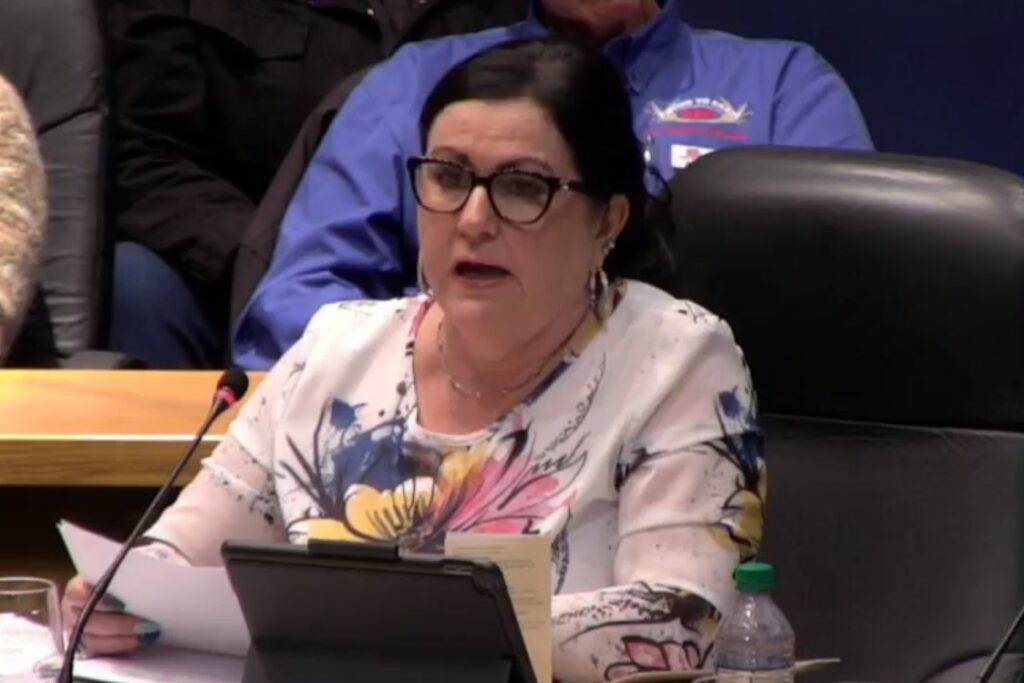
A Chatham-Kent councillor is taking the municipality to court over a decision to dock her pay for three months for violating council’s code of conduct.
Ward 4 Councillor Rhonda Jubenville has filed an application for judicial review in Divisional Court regarding council’s decision to suspend her pay for 90 days, the maximum penalty allowed under Ontario’s Municipal Act.
A judicial review is a process by which courts make sure that the decisions of administrative bodies are fair, reasonable, and lawful.
On August 14, CK Council voted 13-3 in favour of the pay suspension based on a recommendation from Integrity Commissioner Mary Ellen Bench, who had submitted a report detailing an investigation into several complaints about social media posts made by Jubenville.
In her report, Bench said Jubenville had violated the code of conduct by using her influence of office and position as a public official to improperly voice comments about community matters, other councillors, and social issues in the community.
The report specifically points to two Facebook posts that involve the LGBTQ community by referencing the Pride flag.
Jubenville’s lawyer, Michael Alexander, said both the Municipality of Chatham-Kent and Bench have been served with a notice of the judicial review.
The application for judicial review takes issue with the integrity commissioner’s decision to withhold the identities of the individuals who filed complaints against Jubenville. Alexander said by doing so, the integrity commissioner also withheld the factual context for the complaints themselves.
“What did she say? What did she do? When did it happen? Who was involved? We don’t know,” said Alexander. “Just putting allegations down like this without providing the full factual background means that, from a legal standpoint, the integrity commissioner can not sustain her case.”
Alexander said failing to disclose facts of the complaints “gives rise to a concern that the commissioner was biased in her assessment of the complaints.”
“We can’t say for certain that the decision of the integrity commissioner, and by extension council, is based on the right considerations,” he said. “That opens up the possibility that the integrity commissioner’s report is motivated by political bias in disagreement with Rhonda’s views.”
The application also takes issue with one of the complainants possibly being one of Jubenville’s fellow councillors.
“That opens the possibility that the council member made this complaint and that councillor may have been present during the meeting and voted, which is forbidden by the code of conduct,” said Alexander.
Dave Taylor, the director of legal services for Chatham-Kent, said the municipality will not be commenting on the legal action taken by Jubenville.
“As the matter is before the court, it would not be appropriate for us to provide any further comment at this point,” he said.
Alexander said he believes the earliest the judicial review would be brought to court is the spring of 2024.
Should the Division Court rule in her favour, Jubenville would likely be reimbursed her withheld remuneration. As well, depending on the outcome of the judicial review, Alexander said the Ward 4 councillor may launch a civil suit against the municipality.
“It’s been discussed and I’ve raised it in correspondence with the city and the integrity commissioner. But we won’t make any decisions about that until we have a decision from the judicial review application,” he said.




